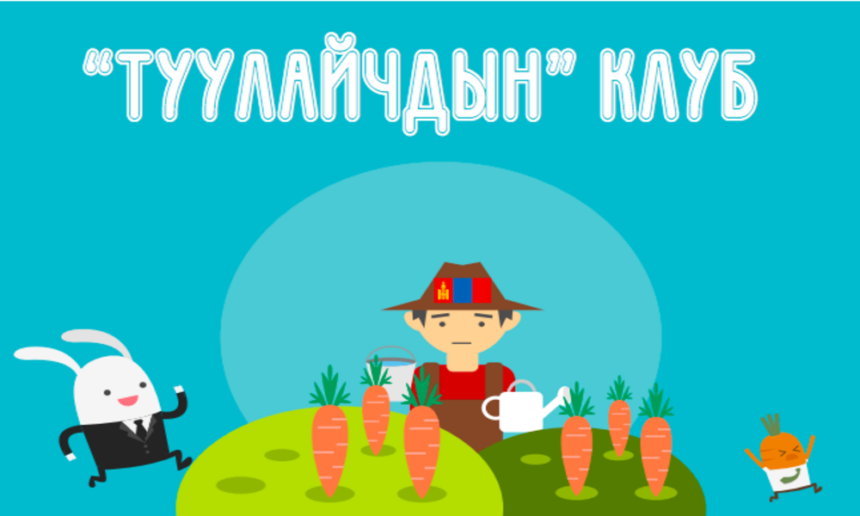There is a volcanic archipelago, 150 kilometers away from the northwest shore of Africa. These islands with 3 million inhabitants, the Canary Islands, are a Spanish territory. Christopher Columbus used the islands as a last preparatory stop before his long journey to discover new territories. Later a large amount of gold was found on these islands making the Spanish empire even richer.
Today, millions of tourists come to these tropical islands with permanent warm temperatures throughout year. The southern shore of the largest island, Las Palmas, was just empty hills and desert 20 years ago. But today, elegant villas, golf courses, race car circuits, congress halls, and luxury hotels are built here, and it became a destination for international events and tourism.
What is the mystery behind big Mongolian big projects almost all failing, while big projects in western countries usually finish on time and become economically efficient as planned? The main reason is economic freedom.
Economic freedom in Mongolia
We can see it clearly from the World Economic Freedom Report 2018 by the Fraser Institute. Over the past two decades, the report shows that people have a better standard of living in countries (Hong Kong, Singapore etc.) with a higher degree of economic freedom, but in those countries (Venezuela, Libya etc.) with low freedom, there is more poverty and unemployment.

The basics of economic freedom are personal choice, voluntary exchange, freedom to enter and compete in markets and protection of private property. Mongolia ranks 48th out of 162 countries with a 7.4 score out of 10. This is an average score of economic freedom in five broad areas including: size of government (8 points, 15th); legal system and property rights (5.5, 62nd); access to sound money (9.39, 42nd); freedom to trade internationally (6.68, 104th); state regulation (7.26, 70th). Russia ranks 87th with 6.8 points, and China 108th with 6.4 points.
And in the 5th area, state regulation, Mongolia received 8.44 points (88th) in the credit markets, 6.65 points (71st) in the labor market, and 6.69 points (62nd) in business regulations.
The main importance of this index is not just to show the comparison between the countries, but to determine in which areas of economic freedom a country has the lower points and to eliminate the reasons. In countries with economic freedom, people often live long in peace and prosperity. There is also a lower level of emigration of the people from the country.
Swaying rule of law
The rule of law means that all people and institutions equally obey the law and the state ensures equal enforcement for all. If this principle is not in place, a democratic country shifts gradually into a dictatorship, freedom of speech is restricted, the currency is depreciated, the economy goes bankrupt, the people are threatened by the armed forces and the country soon descends into chaos.
The index shows that the main area where Mongolia’s economic freedom is downgraded is the legal system and property rights (5.5). It is notable that Mongolia received a score of 3.8 in judicial independence; 3.77 for judicial impartiality; and 4.42 for the protection of property rights. All these areas have traditionally scored poorly.
Today, the distribution of power between the parliament, judiciary, and the executive branch of government have been indistinguishable since the Constitutional Amendment in 2000. A quarter of Parliament members are members of the cabinet. The President initiates laws and appoints the key members of the courts and the anti-corruption agency.
Mongolian citizens participate in democracy only on election day and in between elections just watch endless political “drama”. Civil society is weak and does go beyond social media. Equality before the law has not been the case for quite some time in Mongolia. Unexpected releases after sensational arrests or unenforced decisions of the court, and crime or corruption cases against policemen and judges has become a common social phenomenon.
Free Riders
The primary duty of the state is to protect a person’s safety and property. There are many forms of property, such as individual, corporate, common, public and so on. If one gets exploited, it can directly influence other forms. Protection of property means property must be at least registered, which means transparency of ownership. However, the Mongolian government does not want to pursue this registration. When there is no registration or it is not clear who owns property, these assets are free and exploitable. In such situation, free riders usually come in, and Mongolians call the free riders “rabbits.”
The institutions that provide such opportunities to these “free riders” are the ruling political parties in Mongolia. These parties are converting our natural resources and land into goods for their own club. The club is closed, only for members, and their internal rules are precisely defined to protect their members interests. Members who break the rules are discriminated against, and hated by the majority. The cases of fights between ex-MP Kh.Temuujin and his own DP and, between current MP L.Oyun-Erdene and his MPP are clear recent examples.
All state-owned enterprises, agricultural land, pastures, mining deposits, capital and aimag lands are owned by the MPP or DP. Today, the Erdenet Copper Corporation is owned 49 percent by the DP club and 51 percent by the MPP club and the two parties are fighting to take over each other. The heads or owners of law enforcement authorities, the Independent Authority Against Corruption, commercial banks, and large companies are all members of these clubs.
Mongols do not understand what they still own as almost all property is in the hands of these free riders. Thus, who will be responsible for our property and safety?
Las Palmas, Spain
2018.10.10












